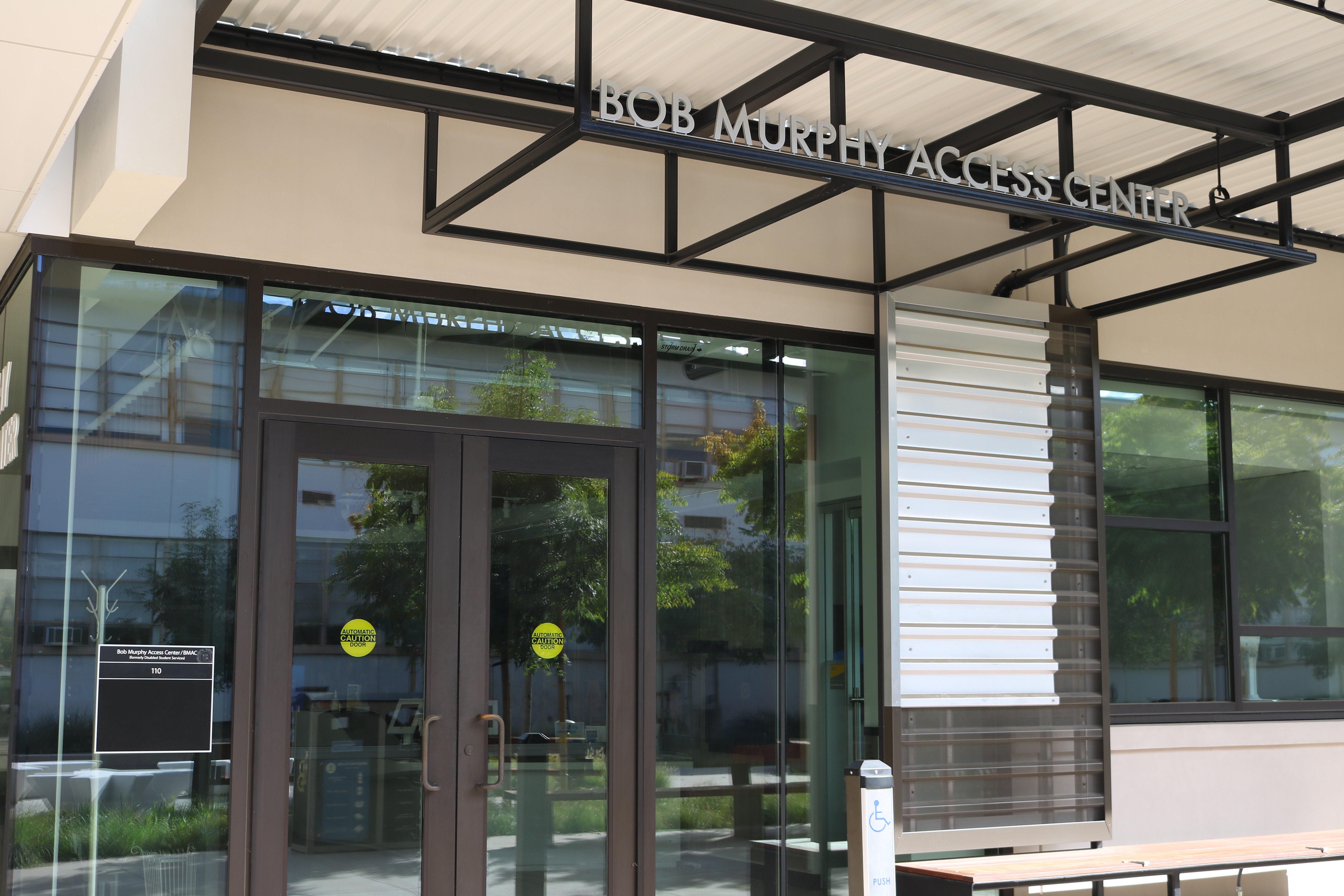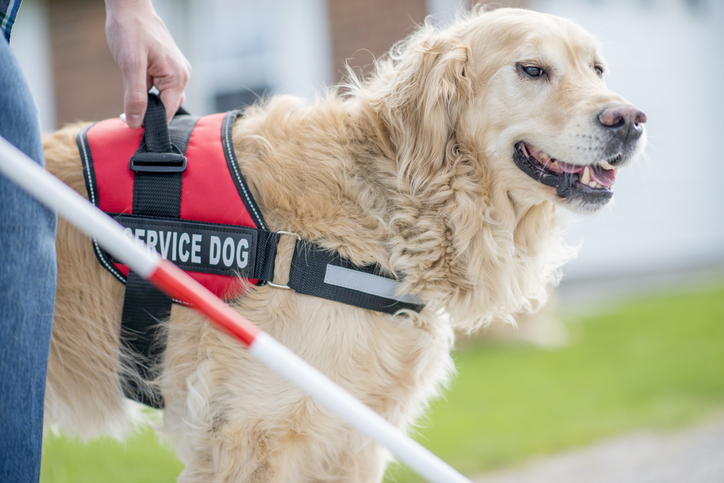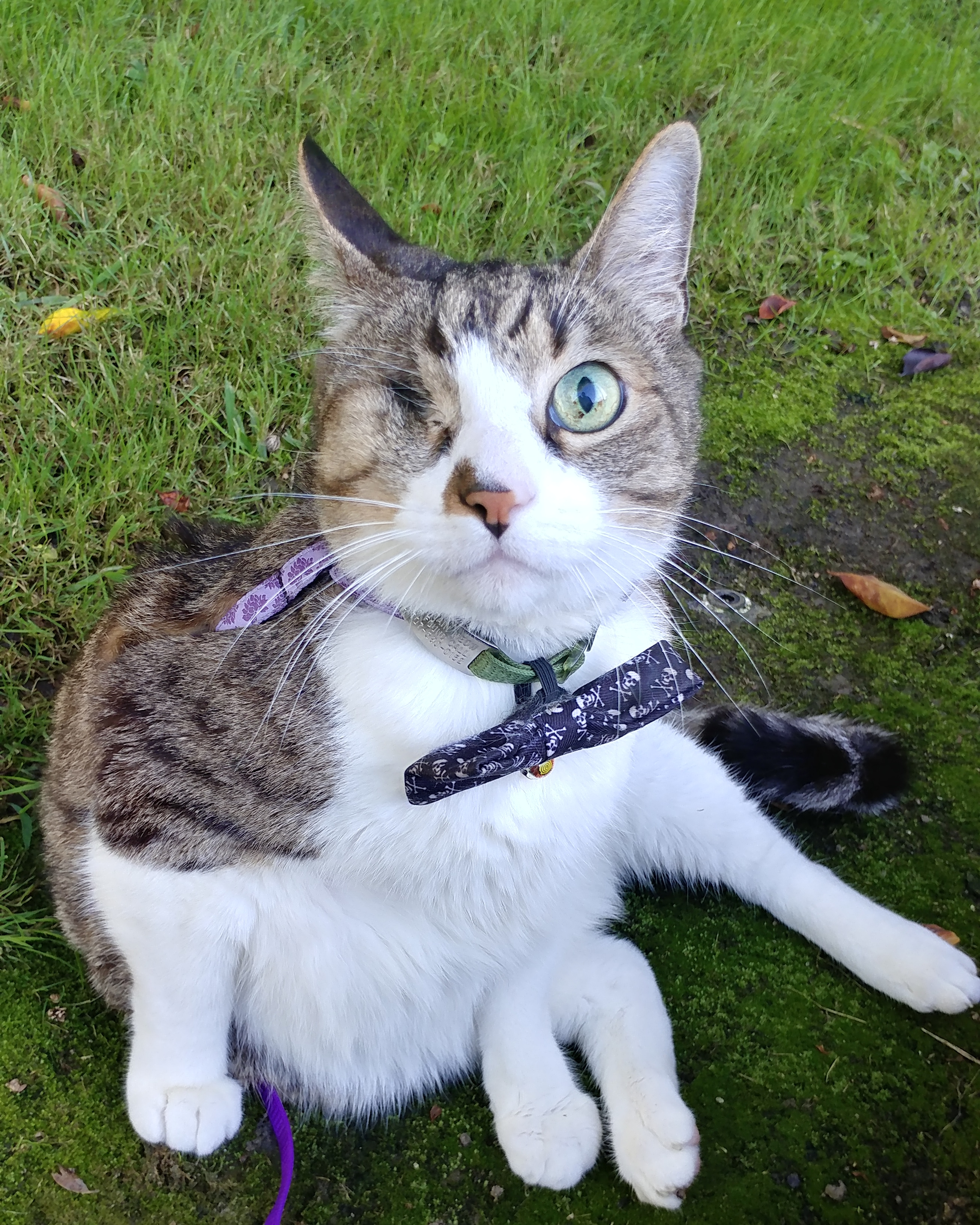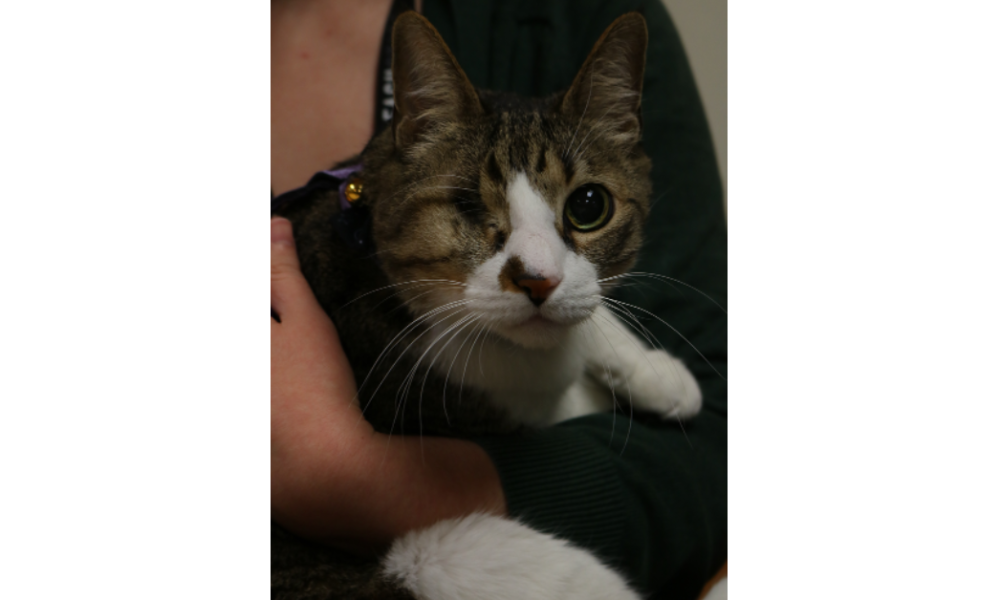Whether a student is in need of a companion to ease their anxieties, or well-trained senses to alert them of medical issues, service and emotional support animals are there to support them.
Although small in number at Long Beach State, some students on campus require the assistance of a service or emotional support animal. But the way these furry companions do their jobs can vary depending on the needs of their humans.
“There are different requirements for each type of support animal,” said Mary Nguyen the interim director of the Bob Murphy Access Center.
Enlarge

Alexandra Apatiga / Daily Forty-Niner
The distinction between service and emotional support animals is the purpose they serve. For service animals, their job is to perform specific tasks or duties for the individual they are supporting.
These specific tasks require animals, of which only dogs and miniature horses can be considered, years of training in order for them to perform their job effectively. Guide dogs, for example, are trained to help guide the visually impaired.
“According to the Americans with Disabilities Act, there are only two questions a person can ask a handler regarding their service animals,” Nguyen said. “The first is: ‘is your dog required because of a disability?’ And two: ‘what duty or job does it perform?”
If the animal performs a specific task to the handler’s benefit, then that animal has access to wherever their owner goes. The only exceptions being if there is a health or safety hazard, or if the animal is misbehaving.
Because of this legal protection, service animals at CSULB aren’t required to register through the Bob Murphy Access Center, but can do so if they choose.
Enlarge

Alexandra Apatiga / Daily Forty-Niner
Fourth-year biology major, Alaine Thronson, is one such student who had her diabetic alert service dog Hunter registered through the Bob Murphy Access Center.
Despite only having had her service dog for three years, Thronson expressed pride in Hunter’s training and ability to detect when her blood sugar is too low.
“He’s a very loving and sweet boy,” Thornson said. “But then when he has his vest on, it’s like his uniform and he’s on his working time. So he’ll sit up a little bit straighter, he’ll listen a little bit better.”
According to Thornson, any form of touching or petting distracts service animals from doing their jobs. Even with a bright red vest with the words “SERVICE” sewed into it, many often assume Hunter is just like any other dog.
“I’d rather people ask me [questions] than think, ‘oh it’s just a dog.’” Thornson said. “Walking around I may look like a normal, functioning human but there are layers that people can’t see, hidden illnesses you know?”
In regards to emotional support animals, they are required to be evaluated and registered through the Access Center. This is due to emotional support animals being considered an accommodation.
“They don’t have the same access as a service animal,” Nguyen said. “We tell [students] that we need a support letter from either a physician or a therapist. That shows that there is an animal that exists to provide and relieve instances of X, Y and Z. [The documentation] needs to show that without the presence of the emotional support animals, the individual is severely impacted in an aspect in daily living.”
Enlarge

Photo courtesy of Ellen Lucchesi
Once a student has registered their animal, it is vetted through the university in order to inform faculty and staff, as well as housing if the student is living in one of the campus dormitories.
According to Nguyen, there is no official means of registering an emotional support animal.
“When any student goes through our office for either a service animal or emotional support animal, we will allow the animals to get a [CSULB] ID card,” Nguyen said. “That is very unique to our campus…It’s essentially a way for students to show that ID card to a staff member and say ‘my dog has been vetted through the university.’”
Thornson and Lucchesi expressed the importance of asking questions and encouraged students at CSULB to be mindful of those with support animals.
“Just be understanding about it,” Thornson said. “Asking questions, if there is any way I can rid the ignorance, that’s what I’m happy to do.”




